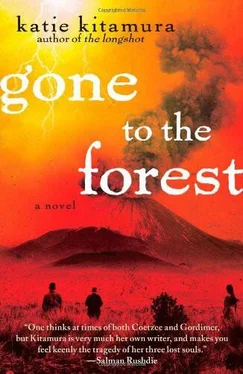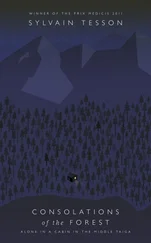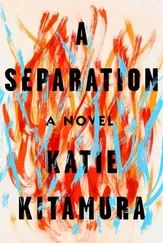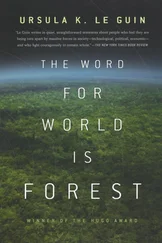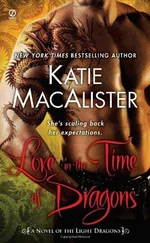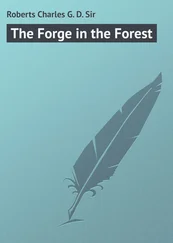The children played in the dirt and listened to the shrieks that rang out across the farmstead. Which sometimes sounded like an animal dying, painfully. She came out of the farmhouse with her skin a hectic red and one hand pressed against her head. Tom watched as she smoothed her hair into place. Calmed the surface of her dress. Then they walked the three miles home, his hand sticky in hers. He knew but did not mind the fact that she was lying. He thought the secret would bring them closer.
There were other flaws in his character, beyond dishonesty and misapprehension, which together conspired to make the son incomprehensible to the father. For example, Tom was a coward. He was easily frightened and physically uncertain. He was not very old when the physical fear became a moral one. It was therefore natural that his father held him in contempt: the old man does not recognize fear as a valid emotion.
It did not help that Tom was especially afraid of the dorado. To him they were a terrifying fish. The dorado grew four feet long in the river, larger than a child and much larger than the child Tom had been. The male fish bore square blocked foreheads and male and female alike their bodies turned gray as they died out of water. But while alive the fish were fearless and had tremendous appetite.
Tom’s father loved the dorado. He is this fish: his father is the dorado. Once, when Tom was a boy, he took him out on the river. He might have been experimenting with the idea of being a father because he was unusually patient. He taught Tom to cast out to the water. He showed him how to reel in. He said very little but he told him that the dorado were a vicious fish that ate into a man’s strength.
Tom remembered how his father caught the dorado on the line. How he began to reel it in. The fish rose out of the water and dropped back in. It appeared to Tom as large as a grown man, as large as his father. It jerked through the water, under the boat, into the air, back into the water. The rod almost bending in two. Tom was not certain that his father would bring it in. He thought surely the rod would snap.
But his father brought the fish in. It was a giant. Male, with the alien crested forehead, the yellow body thrashing against the line. His father lifted it high in the air. He admired the heft and weight, the golden turn of the scales, the tremendous girth of the fish. Then he placed it in Tom’s arms. Tom almost fell with the weight of the dorado, the coldness of the scales, the inner muscle of the animal shuddering hard against its death.
When he came to, his father was standing above him, holding the fish by its tail. Tom watched as he seized a knife and dug into the belly of the fish. He drew a long vertical slit and the crimson guts of the animal tumbled out onto the deck. He ignored his son as he scooped the intestines into one hand and threw them back into the river. The dorado swarmed the boat, jaws snapping.
The fish became their livelihood. Running a farm was an expensive business. The river supported the farm and allowed them to maintain the large holding of land. More and more tourists came to the province in search of the mighty dorado. His father took them out on the boats at dawn. He taught them to cast out and reel in. He brought in the fish and gutted them before their eyes, he treated them the same way he had treated Tom, years ago.
When his father arrived in the country he was a young man. Now he is old. Now he sits — he squats, he straddles — the land. But his presence has been heavy from the start. He picked out the land by riding in the night with a torch held high above his head. A native dug a trench in the soil behind him. The next day they went back with wood and wire and it was done. The old man makes his choice. He grips it out of the air with his hands. He is essentially a violent man.
Tom is different. He does not force himself upon the land. He does not force himself upon anything. There is very little that Tom can call his own. Tom is not like his father, Tom has chosen nothing. He did not choose the country or the piece of land. He did not choose the business of the farm. He did not choose the house, with its dark rooms and corridors. All this was chosen for him, and Tom barely aware of it. It is simply his world.
FOR SEVERAL YEARS the pool of guests has been dwindling. There have been empty rooms at high season and the river has remained full of fish, something impossible even a few years ago. Across the province there are fewer visitors. They are far from the cities to the north. The cost of travel is high. And there is unrest in the country, Tom has heard it said. It is growing and the news of it is spreading abroad — bad stories, violent stories that do not inspire confidence.
One by one the gentleman farmers are moving. The idea of living in open land surrounded by natives is no longer appealing. Those with houses in the cities are giving up the country life and moving north. They are closing their farms and estates, which are becoming too hard to protect, having always been vast and exposed. They leave them in the hands of the hardier settlers who remain in the province and are a restless and violent presence. They do not say when they might return.
The circle of refined company is shrinking day by day. Once there were dances and banyan parties — once there was a social calendar! Tom and his father remain. His father does not believe in the city. The other farmers tell him to move out of the country, that it is dying in front of them, that soon it will no longer be safe. His father chooses to stay on the side of the land. He cannot imagine being without the farm. In this, father and son are united.
It is now near evening. Tom stands in front of the mirror in his room. It is large and crowded with things. Furniture brought over from the old country by his mother or father. Objects shipped to them by strangers. He finds these histories oppressive but has essentially grown used to it. Tom does not expect privacy, even in his own room. Carefully, he adjusts the lapel on his jacket and smooths his hair back with grease. He checks the crease in his trousers and then leaves the room, closing the door behind him.
He walks the house in search of his father. He goes across the foyer, which is full of potted trees. Miniature orange trees. Plum trees. He passes the dining room and notes the good linen and silver and china. He sees that the table is now set for five. Five plates, five sets of glasses and cutlery. He pauses, and then walks out to the veranda, slowly.
He walks in the direction of the river and finds his father within minutes. The open land pulls to the river. Which has become the old man’s sole preoccupation as the province empties and the tourism dwindles. A year ago they installed the river farm. Now the pools float in the middle of the river like space age contraptions. The fish birthing and growing, inside the skin of the device. The river flushing in and out.
Tom frowns as he looks at the river. The old man has staked much on the river farm. The pools were installed at vast expense and they sucked the savings — the bounty of those years of lush tourism, now coming to an end — right into the water. At first it did not seem promising. The natives talked of evil and contamination. The eggs floated in the steel and mesh like a river disease.
But then the fish grew. They grew until the pools were full of fish flesh, pressed close together. Now it seems clear that the river farm is what will allow them to live. It will sustain the farm, through the rumors of unrest. It will pay for the imported caviar, the cashmere blankets, the fur coats, the coffee and tea. His father jokes that he is become a fishmonger but already there are plans for more pools, placed downstream, placed upstream. The province empties of landlords and tourists but there are always the fish and the natives.
Читать дальше
